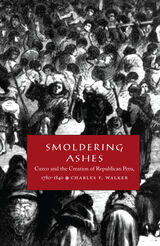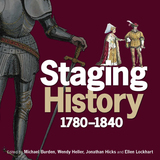4 books about 1780 - 1840

Kings And Clans
Ijwi Island And The Lake Kivu Rift, 1780-1840
David Newbury
University of Wisconsin Press, 1992
By reconstructing the history of kings and clans in the Kivu Rift Valley (on the border of today's Rwanda and Zaire) at a time of critical social change, David Newbury enlarges our understanding of social process and the growth of state power in Africa. In the early nineteenth century, many factors contributed to the creation of new social relations in the Lake Kivu region—ecological change, population movement, the expansion of the Rwandan state from the east, the rise of new political units to the west, and the movement of many population groups and their ritual forms through the area. Newbury looks in particular at the role of clans in the establishment of a new kingdom on Ijwi Island in Lake Kivu.
Drawing on detailed ethnographic observations of the social and ritual organizations of Ijwi society, an extensive body of oral data, and evidence from written sources, Newbury shows that the clans of Ijwi were not static formations, nor did the establishment of a royal family on the island emerge from military conquest and internal social breakdown. Instead, clan identities changed over time, and these changes actually facilitated the creation of kingship on Ijwi. Through a detailed examination of succession struggles, of local factors influencing the outcome of such struggles, and of specific clan participation in public rituals that legitimize royalty, Newbury’s study illustrates the importance of clan identities in both the creation of state power and its reproduction over time.
Drawing on detailed ethnographic observations of the social and ritual organizations of Ijwi society, an extensive body of oral data, and evidence from written sources, Newbury shows that the clans of Ijwi were not static formations, nor did the establishment of a royal family on the island emerge from military conquest and internal social breakdown. Instead, clan identities changed over time, and these changes actually facilitated the creation of kingship on Ijwi. Through a detailed examination of succession struggles, of local factors influencing the outcome of such struggles, and of specific clan participation in public rituals that legitimize royalty, Newbury’s study illustrates the importance of clan identities in both the creation of state power and its reproduction over time.
[more]

POLICING THE CITY
CRIME & LEGAL AUTHORITY IN LONDON, 1780-1840
ANDREW T. HARRIS
The Ohio State University Press, 2004
In Policing the City, Harris seeks to explain the transformation of criminal justice, particularly the transformation of policing, between the 1780s and 1830s in the City of London. As utilitarian legal reformers argued that criminal deterrence ought to be based on certain and rational punishment rather than random execution, they also had to control the discretionary authority of enforcement. This meant in theory and practice the centralization of policing in the 1830s, and the end of local policing, which was seen as corrupt, inefficient, and unsuitable for rational criminal justice. Revolutionary changes in policing began locally, however, in the 1780s. Such local changes preceded and inspired national reforms, and local policing up to the centralizing measures of the 1830s remained dynamic, responsive, and locally accountable right until its demise. Anxiety about policing had as much to do with the social origins of the police as it did about the origins of criminality, and control over the discretionary authority of watchmen and constables played a larger role in criminal justice reform than the nature of crime. The national, metropolitan, and City police reforms of the late 1830s were thus the culmination of a contentious argument over the meanings of justice, efficiency, and order, rather than its beginning. Harris's evidence reveals how what we've come to think of as “modern” policing evolved out of local practice and reflects shifts in wider debates about crime, justice, and discretionary authority.
[more]

Smoldering Ashes
Cuzco and the Creation of Republican Peru, 1780-1840
Charles F. Walker
Duke University Press, 1999
In Smoldering Ashes Charles F. Walker interprets the end of Spanish domination in Peru and that country’s shaky transition to an autonomous republican state. Placing the indigenous population at the center of his analysis, Walker shows how the Indian peasants played a crucial and previously unacknowledged role in the battle against colonialism and in the political clashes of the early republican period. With its focus on Cuzco, the former capital of the Inca Empire, Smoldering Ashes highlights the promises and frustrations of a critical period whose long shadow remains cast on modern Peru.
Peru’s Indian majority and non-Indian elite were both opposed to Spanish rule, and both groups participated in uprisings during the late colonial period. But, at the same time, seething tensions between the two groups were evident, and non-Indians feared a mass uprising. As Walker shows, this internal conflict shaped the many struggles to come, including the Tupac Amaru uprising and other Indian-based rebellions, the long War of Independence, the caudillo civil wars, and the Peru-Bolivian Confederation. Smoldering Ashes not only reinterprets these conflicts but also examines the debates that took place—in the courts, in the press, in taverns, and even during public festivities—over the place of Indians in the republic. In clear and elegant prose, Walker explores why the fate of the indigenous population, despite its participation in decades of anticolonial battles, was little improved by republican rule, as Indians were denied citizenship in the new nation—an unhappy legacy with which Peru still grapples.
Informed by the notion of political culture and grounded in Walker’s archival research and knowledge of Peruvian and Latin American history, Smoldering Ashes will be essential reading for experts in Andean history, as well as scholars and students in the fields of nationalism, peasant and Native American studies, colonialism and postcolonialism, and state formation.
Peru’s Indian majority and non-Indian elite were both opposed to Spanish rule, and both groups participated in uprisings during the late colonial period. But, at the same time, seething tensions between the two groups were evident, and non-Indians feared a mass uprising. As Walker shows, this internal conflict shaped the many struggles to come, including the Tupac Amaru uprising and other Indian-based rebellions, the long War of Independence, the caudillo civil wars, and the Peru-Bolivian Confederation. Smoldering Ashes not only reinterprets these conflicts but also examines the debates that took place—in the courts, in the press, in taverns, and even during public festivities—over the place of Indians in the republic. In clear and elegant prose, Walker explores why the fate of the indigenous population, despite its participation in decades of anticolonial battles, was little improved by republican rule, as Indians were denied citizenship in the new nation—an unhappy legacy with which Peru still grapples.
Informed by the notion of political culture and grounded in Walker’s archival research and knowledge of Peruvian and Latin American history, Smoldering Ashes will be essential reading for experts in Andean history, as well as scholars and students in the fields of nationalism, peasant and Native American studies, colonialism and postcolonialism, and state formation.
[more]

Staging History
1780-1840
Edited by Michael Burden, Wendy Heller, Jonathan Hicks, and Ellen Lockhart
Bodleian Library Publishing, 2016
Throughout the late-eighteenth and early nineteenth centuries, historical events were tremendously popular as adaptations for the stage. From the Revolutionary War to the French Revolution, stage dramas brought history vividly to life through powerful vocal performances and visual spectacle. The scale of the production was often ambitious, such as a Sadler’s Well staging of the Great Siege of Gibraltar, which featured a large water tank with floating vessels. Another production on the same topic added live cannons, which set fire to the vessels during the performance!
Drawing on copious new research, Staging History reexamines extraordinary theatrical works of the period to show the role they played in shaping popular interpretations of history. Editors Michael Burden, Wendy Heller, Jonathan Hicks, and Ellen Lockhart are joined by other experts in the field in analyzing theatrical documents, including playbills, set designs, and musical scores, as well as paintings, prints, and other illustrations, in order to explore what counted as historical truth for the writers, performers, and audiences of these plays.
Drawing on copious new research, Staging History reexamines extraordinary theatrical works of the period to show the role they played in shaping popular interpretations of history. Editors Michael Burden, Wendy Heller, Jonathan Hicks, and Ellen Lockhart are joined by other experts in the field in analyzing theatrical documents, including playbills, set designs, and musical scores, as well as paintings, prints, and other illustrations, in order to explore what counted as historical truth for the writers, performers, and audiences of these plays.
[more]
READERS
Browse our collection.
PUBLISHERS
See BiblioVault's publisher services.
STUDENT SERVICES
Files for college accessibility offices.
UChicago Accessibility Resources
home | accessibility | search | about | contact us
BiblioVault ® 2001 - 2024
The University of Chicago Press









